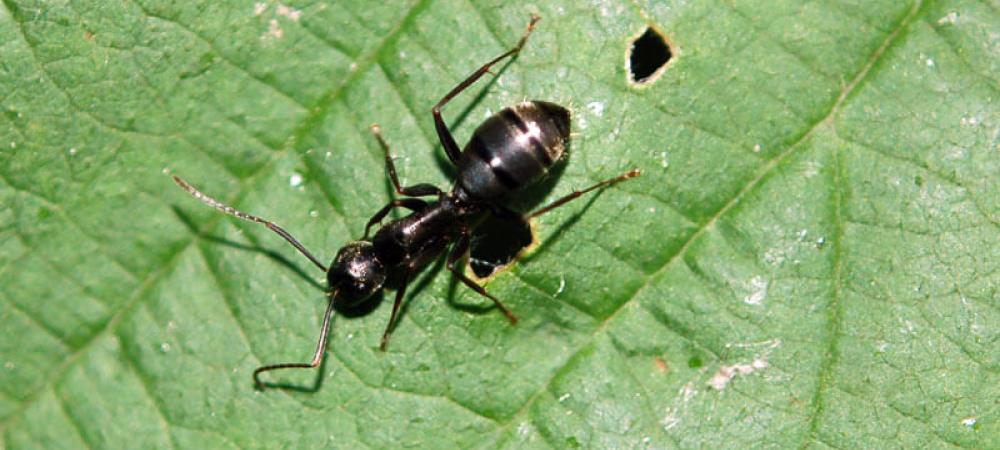Winning the War Against Argentine Ants in Coastal NC - Your Ultimate Guide

The allure of Coastal North Carolina, with its stunning shorelines and vibrant ecosystems, draws countless homeowners to its charming communities. However, this beautiful environment can also attract less desirable inhabitants – particularly the persistent and problematic Argentine ant (Linepithema humile). These tiny, yet incredibly organized invaders are a common nuisance in the region, known for their massive colonies and relentless quest for food and shelter within our homes. Understanding their unique characteristics and implementing effective, SEO-friendly control strategies is paramount to reclaiming your peace of mind and maintaining an ant-free living space.
Know Your Enemy: Detailed Identification of the Argentine Ant
Before embarking on your ant-battling journey, accurate identification is crucial. Argentine ants are relatively small, typically measuring between 1/16 to 1/8 of an inch in length (approximately 1.5 to 3 mm). Their bodies exhibit a uniform light to dark brown coloration and possess a smooth, shiny exoskeleton. A key distinguishing feature is the absence of spines on their backs and a single, inconspicuous node (a small, raised segment) on their pedicel – the narrow waist connecting the thorax and abdomen.
Perhaps the most telling identifier is the distinct musty or greasy odor they release when crushed. This scent, often described as similar to stale cooking oil, is a reliable indicator of an Argentine ant infestation and can help differentiate them from other common household ants in Coastal NC. Observing their behavior – often moving in well-defined trails – can also aid in identification.
Behavior and Habitat: Unraveling Their Colonial Lifestyle
Argentine ants are social insects with a highly organized and remarkably successful colonial structure. Unlike many other ant species that maintain distinct and often hostile territories, Argentine ant colonies exhibit a unique characteristic: they readily merge with neighboring colonies, forming vast, interconnected supercolonies. These supercolonies can span significant distances, making them incredibly adaptable and challenging to eradicate completely from a larger area.
Within and around your Coastal NC home, Argentine ants thrive in moist environments. They frequently establish nests in inconspicuous locations such as under mulch, loose bark, stones, and within the confines of potted plants. They also exploit sheltered spaces closer to your home's foundation, including wall voids, under flooring, and within piles of debris. Their foraging patterns are highly organized, with workers forming distinct trails along sidewalks, foundation lines, baseboards, and other pathways leading to food sources. They are opportunistic feeders, attracted to a wide array of substances, from sugary spills, crumbs, and grease to unattended pet food and even dead insects. This adaptability in their diet contributes to their success in invading human dwellings.
Risks and Challenges: More Than Just a Kitchen Pest
While the sight of a few ants trailing across your countertop might seem like a minor inconvenience, Argentine ant infestations can escalate into significant problems for Coastal NC homeowners. Their sheer numbers can become overwhelming, leading to constant and unsightly trails throughout your living spaces.
Beyond the nuisance factor, Argentine ants pose ecological risks. Their aggressive nature and large colony sizes allow them to outcompete and displace native ant species, potentially disrupting the delicate balance of the local ecosystem. This displacement can have cascading effects on other insect populations and the animals that rely on them.
Inside your home, their relentless foraging can lead to the contamination of food and food preparation surfaces. Their presence can also be aesthetically unpleasant and, in some cases, trigger allergic reactions in sensitive individuals. The interconnected nature of their supercolonies makes them particularly difficult to eliminate with simple over-the-counter solutions, often requiring a more strategic and persistent approach.
Fortifying Your Fortress: Proactive Prevention Strategies for Coastal Homes
The most effective long-term solution to Argentine ant problems in Coastal NC lies in proactive prevention. By making your home less attractive and accessible to these invaders, you can significantly reduce the likelihood of an infestation. Some strategies include:
- Seal All Potential Entry Points: Conduct a meticulous inspection of your home's exterior, paying close attention to cracks and crevices in the foundation, around pipes, windows, and door frames. Use high-quality caulk or other appropriate sealants to close these pathways. Don't forget to seal openings where utility lines enter your home.
- Maintain Impeccable Cleanliness: Eliminate potential food sources by practicing diligent cleaning habits. Wipe up spills immediately, store all food items (including pet food) in airtight containers, and regularly clean under appliances, furniture, and in pantries where crumbs might accumulate. Promptly dispose of garbage in sealed bins.
- Manage Vegetation and Control Moisture: Trim any shrubs, bushes, and tree branches that come into contact with your house, as these can act as bridges for ants to gain access. Ensure proper drainage around your home's foundation to prevent moisture buildup, which attracts Argentine ants. Consider elevating potted plants on stands to reduce nesting opportunities. Repair any leaky faucets or pipes promptly.
- Minimize Outdoor Attractants: Clean up any fallen fruit or food debris in your yard. Be mindful of outdoor pet feeding areas and clean up any uneaten food. Consider using insect-proof trash cans.
Taking Action: Implementing Effective Control Measures
Despite your best preventive efforts, Argentine ants may still find their way onto your Coastal NC property. When an infestation occurs, targeted control measures are necessary. To get rid of Argentine ants, consider:
- Strategic Baiting Techniques: Baiting is often the most effective method for long-term control of Argentine ants due to their colony structure and feeding habits. Worker ants readily take the bait back to the colony, sharing the insecticide with the queen and other nestmates, ultimately leading to colony decline. Utilize liquid or gel baits specifically formulated for ants and strategically place them along known ant trails, near entry points, and in areas where ant activity is high. Be patient, as it can take several days or even weeks for the bait to have a significant impact on the entire colony. Monitor the bait stations and replenish them as needed.
- When Professional Pest Control is Necessary: For severe or persistent Argentine ant infestations, or if you are uncomfortable handling pesticides, it is highly recommended to consult a qualified professional pest control service specializing in ant management in the Coastal NC region. These experts possess the knowledge, experience, and access to specialized treatments and strategies to effectively target and eliminate large, interconnected Argentine ant colonies. They can also identify nesting sites that may be difficult for homeowners to locate and implement preventative measures tailored to your specific property.
Vigilance and Persistence for an Ant-Free Coastal Life
Argentine ants are a persistent challenge for homeowners in Coastal North Carolina, but with a comprehensive understanding of their behavior and the implementation of consistent prevention and targeted control strategies, you can effectively manage and minimize their presence. Early detection of ant activity is key, allowing for prompt action before infestations become widespread. Remember that a multi-pronged approach, combining preventative measures with appropriate control techniques, offers the best long-term solution for enjoying the beauty of the coast without the constant annoyance of these tiny invaders. Stay vigilant, be persistent, and reclaim your home from the uninvited guests.
Dealing with persistent Argentine ants in your Coastal NC home can be frustrating. Don't let these tiny invaders take over! For effective and reliable ant control solutions, reach out to the experts at Bug-N-A-Rug. Our experienced team understands the unique challenges of Argentine ant infestations in our region and can provide tailored treatments to help you reclaim your ant-free living space. Contact Bug-N-A-Rug today for a consultation!
For authoritative and detailed information on managing house-invading ants in North Carolina, be sure to consult the valuable resource provided by NC State Extension: "A Guide to House-Invading Ants and Their Control."

